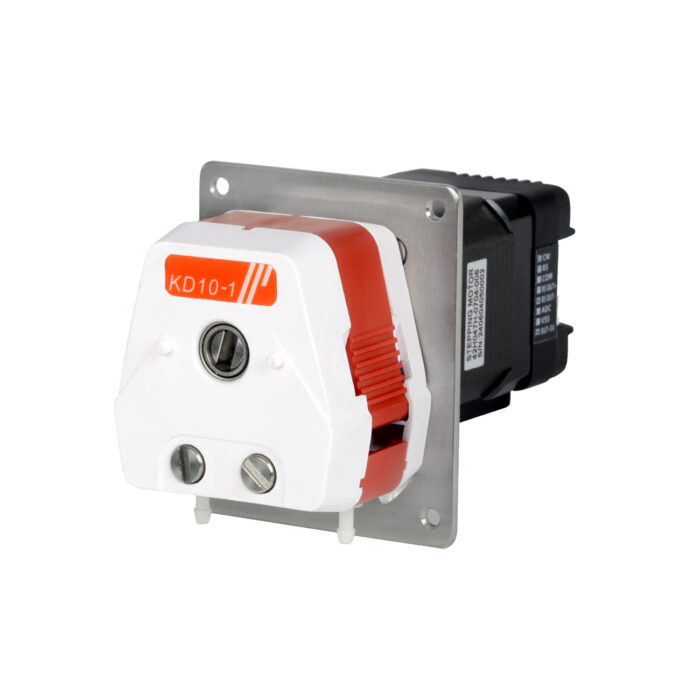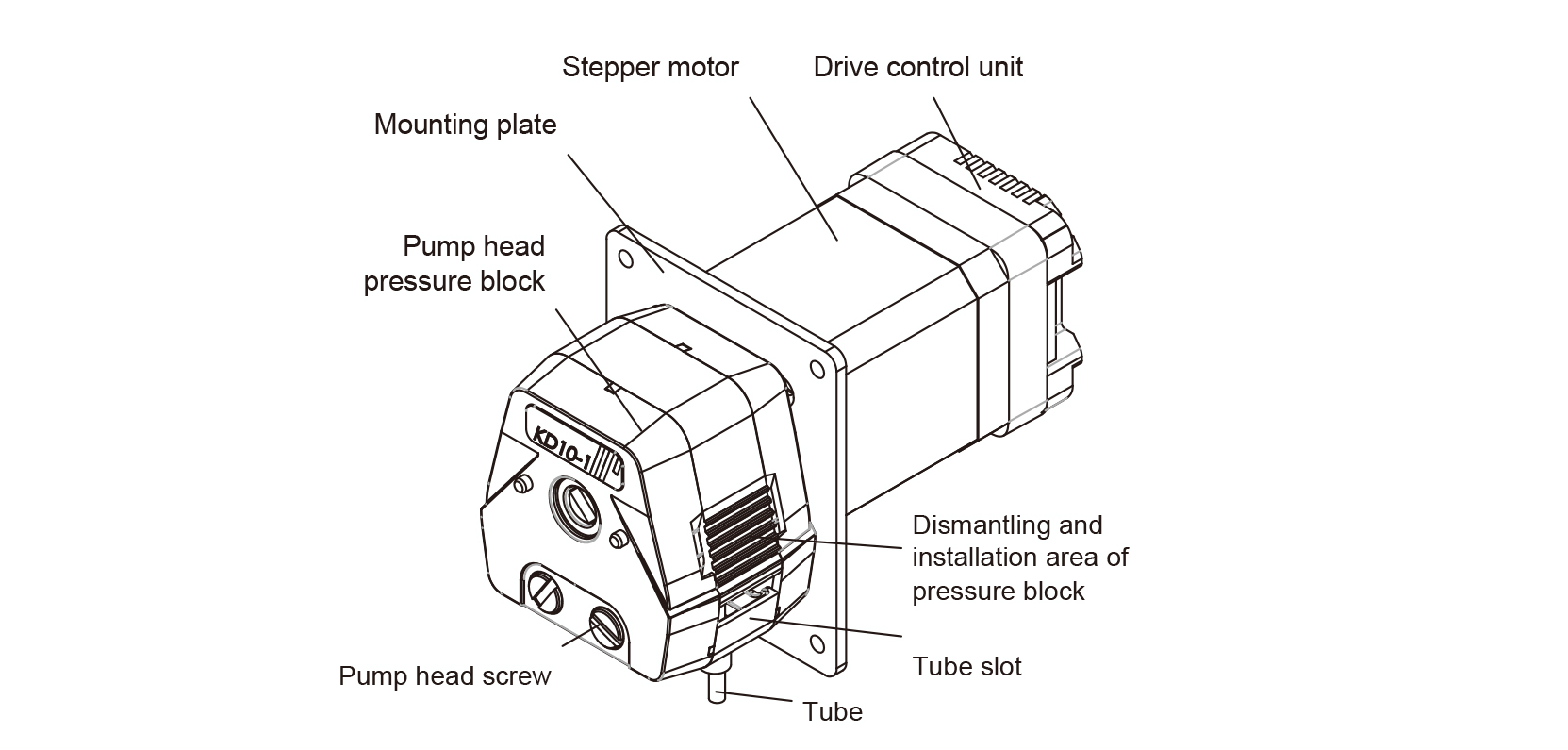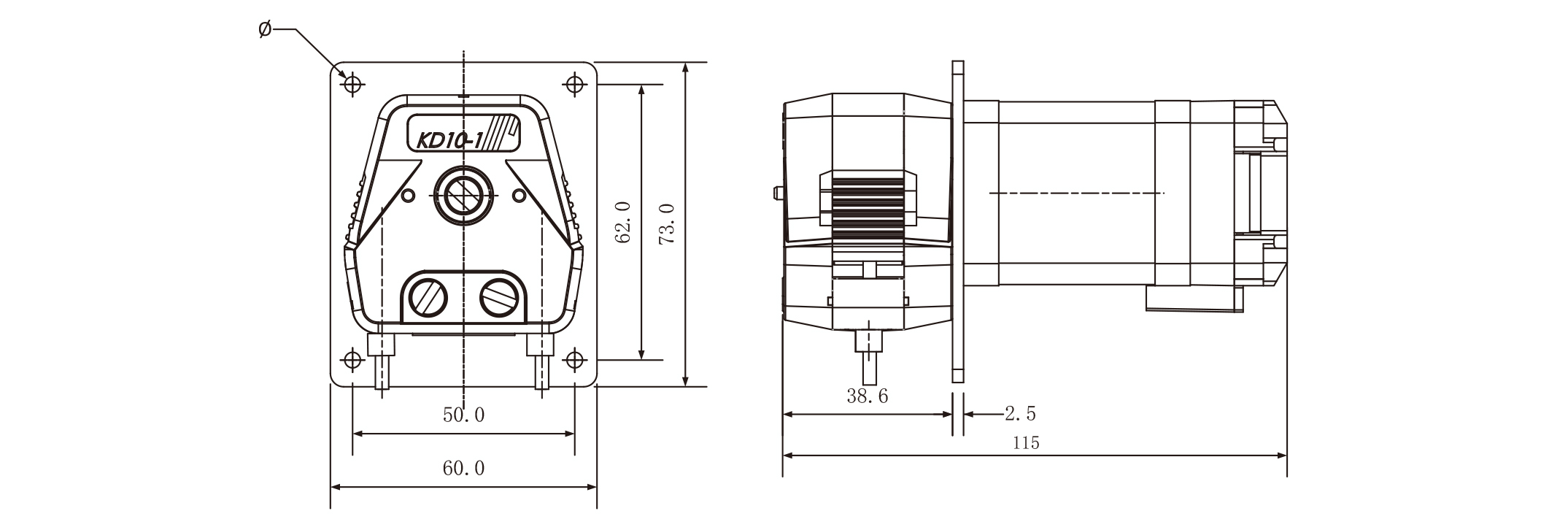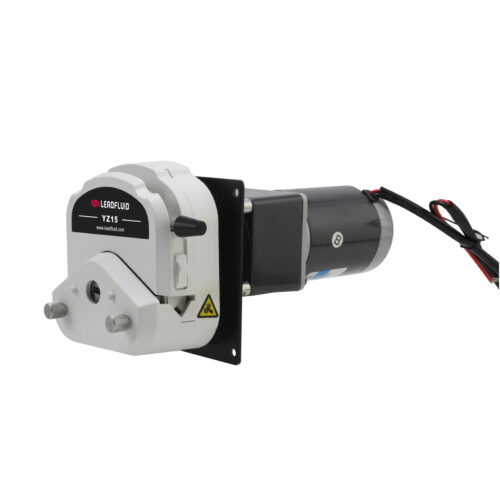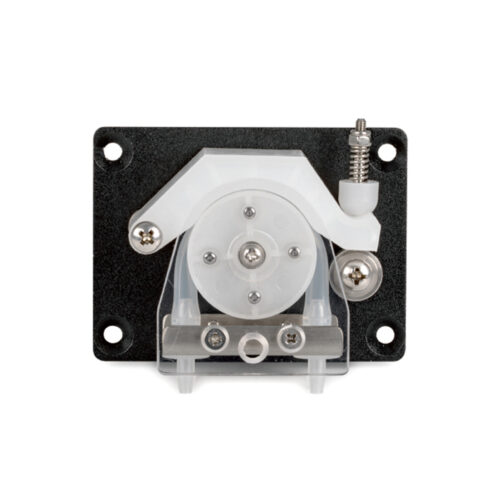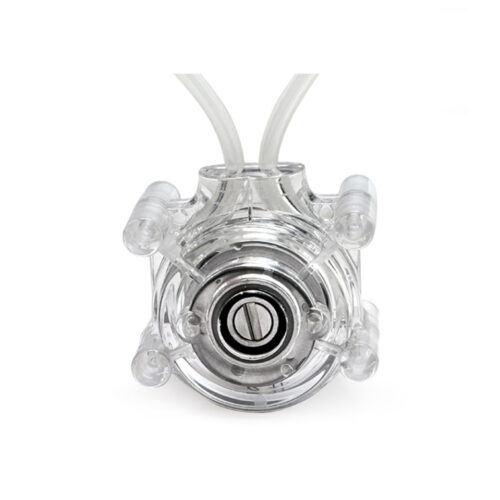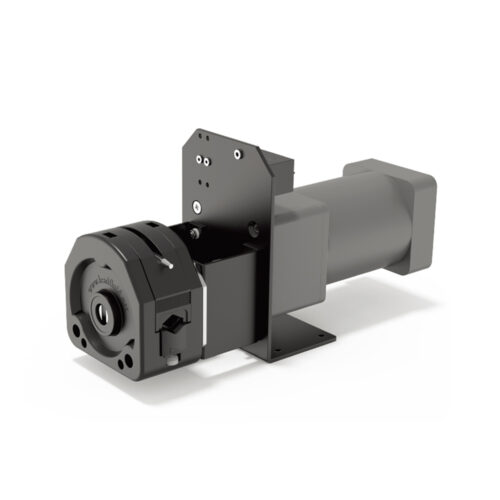Introduction
•Control mode utilizes RS485 communication (Modbus RTU);
•With running status output function;
•It can adapt to various tubes
•Small and compact with an attractive and aesthetically pleasing design
•Low running noise;
•Ideal for continuous operation at low speeds.
Parameters
Motor types: 42 stepper motor
Power supply voltage: DC12V-24V
Wattage: <20W
Speed range: ≤200rpm
Control mode: RS485(Modbus RTU)
Baud: 9600
Check bit: Parity check/No parity check (configurable via DIP switch)
Data bit: 8
Stop bit: 1
Suitable tubes: Silicone tube / Pharmed tube
Start-stop method: External pulse signal control (DC12-24V)/RS485 communication
Direction switch method: External pulse signal control (DC12-24V) / RS485 communication
Running direction: Clockwise/Counterclockwise rotation
Material of pump head shell: PVDF
Roller material: PVDF
Material of the roller shaft: S304
Material of the mounting plate: S304
Noise: ≤60dB (testing environment noise ≤40dB, horizontal distance between test product and noise meter is 1 meter)
Driver weight: 600g
Dimensions: (L*W*H) 115*60*73mm
Working environment: Temperature 0- 40°C, , Relative humidity< 85% RH
Storage environment: In a clean and well-ventilated environment with ambient temperatures ranging from -40 to +50°C, and relative humidity not exceeding 95%, the air must not contain corrosive, flammable gases, oil mist, or dust.
Tube Model and Flow Reference Table
| Tube | Speed(rpm) | Flow Rate (mL/rpm) | 10rpm | 30rpm | 50rpm | 80rpm | 100rpm | 200rpm |
| Silicone | 0.5*092 | 0.018 | 0.18 | 0.54 | 0.90 | 14 | 1.8 | 3.6 |
| 1*0.92 | 0.058 | 0.58 | 1.7 | 2.9 | 4.6 | 5.8 | 12 | |
| 2*0.92 | 0.18 | 1.8 | 5.4 | 9.0 | 13 | 18 | 36 | |
| 2.4*0.92 | 0.29 | 2.9 | 8.7 | 15 | 23 | 29 | 58 | |
| 3*0.92 | 0.40 | 4.0 | 12 | 20 | 32 | 40 | 80 | |
| Pharmed | 0.25*0.9 | 0.0040 | 0.040 | 0.12 | 0.20 | 0.32 | 0.40 | 0.80 |
| 0.76*0.85 | 0.02 | 0.020 | 0.60 | 1.0 | 1.6 | 2.0 | 4.0 | |
| 1.3*0.85 | 0.007 | 0.070 | 2.10 | 3.5 | 5.6 | 7.0 | 14 | |
| 1.52*0.85 | 0.10 | 1.0 | 3.0 | 5.0 | 8.0 | 10 | 20 | |
| 1.85*0.85 | 0.16 | 1.6 | 4.7 | 7.8 | 12 | 16 | 31 | |
| 2.79*0.84 | 0.38 | 3.8 | 11 | 19 | 30 | 38 | 76 | |
| 3.2*0.8 | 0.48 | 4.8 | 14 | 24 | 38 | 48 | 96 |
•The above flow data were all tested using a Lead Fluid silicone tube to pump pure water under laboratory conditions with normal temperature and pressure. This data is for reference only.
•Due to pressure in actual use , temperature, medium characteristics, tube material and other specific factors, the specific situation needs to consult our engineers.
Figure 1 Products Structure
Tube Installation
• Press the regions marked by arrows 1 and 2 in Figure 4 with your hand, then lift in the direction of arrow 3 to detach the pump head pressure block.
• Move Arrows 4 and 5 in the direction opposite to what is indicated, and detach the tube slot;
• Position the center of the tube above the pump’s roller mechanism ( this should be situated below the pump head pressing block before it is removed ) ;
• Insert the two disassembled tube slots into the inner sides of the tube cover/tube connector, and then insert them into the pump head in the direction indicated by the arrows in the figure below.
• Press and hold the pressing areas on the sides of the pump head compression block (indicated by arrow 1 and arrow 2). Push the compression block downward in the direction opposite to arrow 3 until the block is securely placed on the pump head.
Figure2 Pump Head Installation Diagram Figure3 Pump Head Installation Diagram
